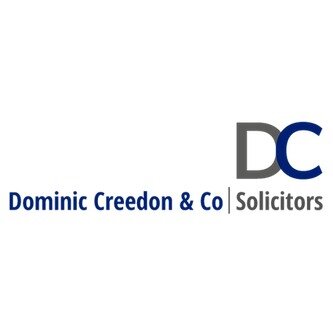Best Domestic Violence Lawyers in Cork
Share your needs with us, get contacted by law firms.
Free. Takes 2 min.
Free Guide to Hiring a Family Lawyer
List of the best lawyers in Cork, Ireland
About Domestic Violence Law in Cork, Ireland
Domestic violence is a serious issue that affects many individuals across Cork, Ireland. It encompasses physical, emotional, psychological, and sexual abuse within a domestic setting, typically involving partners or family members. The Irish legal system has established various laws and protections to assist victims and hold perpetrators accountable. Understanding these laws is crucial for those affected, as well as for those seeking to offer support.
Why You May Need a Lawyer
Seeking legal advice in cases of domestic violence is often essential. Here are some common situations where legal help may be required:
- Obtaining a Protection Order or a Safety Order.
- Navigating the criminal justice system after reporting an incident to the Gardaí (police).
- Filing for divorce or separation due to domestic violence.
- Securing custody and visitation rights for children.
- Addressing concerns related to immigration status impacted by domestic violence.
- Seeking compensation for injuries or psychological harm.
Local Laws Overview
Cork, Ireland, follows national laws regarding domestic violence, with some key aspects being particularly relevant:
- Domestic Violence Act 2018: This act provides comprehensive protections, including Safety Orders, Protection Orders, and Barring Orders.
- Criminal Law: Domestic violence can result in criminal charges such as assault, harassment, and coercive control, with significant penalties.
- Family Law: Family law provisions cover matters like custody, access, and maintenance where domestic violence is a concern.
- Victims' Rights: Victims of domestic violence have specific rights under Irish law, aimed at ensuring their safety and well-being.
Frequently Asked Questions
What is a Safety Order?
A Safety Order is a court order that prohibits the abuser from engaging in violent or threatening behavior. It does not require the abuser to leave the home.
What is a Barring Order?
A Barring Order is a court order that requires the abuser to leave the home and stay away for a specified period, providing broader protection than a Safety Order.
How do I apply for a Protection Order?
You can apply for a Protection Order at your local District Court. Legal advice and support services can assist you in preparing your application.
Can I report domestic violence to the Gardaí?
Yes, domestic violence can and should be reported to the Gardaí. They are trained to handle such cases and can offer immediate protection.
What is coercive control?
Coercive control involves a pattern of behavior that intimidates, isolates, and controls the victim. It is recognized as a criminal offense under Irish law.
How can I ensure the safety of my children?
Legal measures such as custody orders and supervised visitation can be arranged to safeguard children. Social services can also provide additional support.
Are there shelters available in Cork?
Yes, Cork has several shelters and safe houses that provide emergency accommodation and support services for victims of domestic violence.
Is legal aid available for domestic violence cases?
Legal aid is available in Ireland for those who qualify financially. This can help cover the cost of legal representation in domestic violence cases.
What should I document if I'm experiencing domestic violence?
Keep a record of any incidents, including dates, times, details of the abuse, and any witnesses. Medical records and photographs of injuries can also be valuable evidence.
Can I get help if I'm not a citizen of Ireland?
Yes, non-citizens are entitled to protection under Irish law. There are specific supports available for immigrants facing domestic violence, including advice on immigration status.
Additional Resources
If you need additional help, consider reaching out to the following resources:
- Women's Aid: A national organization offering support and advocacy for women experiencing domestic violence.
- Cork Domestic Violence Resource Centre: Provides information, support, and referral services.
- Legal Aid Board: Offers legal representation to those who cannot afford it.
- Child and Family Agency (Tusla): Provides child protection services and support for families.
- Garda Victim Services Office: Offers support and information to victims of crime.
Next Steps
If you or someone you know is experiencing domestic violence and needs legal assistance, consider taking the following steps:
- Seek Immediate Help: In an emergency, contact the Gardaí or visit the nearest hospital.
- Contact a Lawyer: Reach out to a lawyer who specializes in domestic violence cases to discuss your options and rights.
- Apply for a Protection Order: Visit your local District Court to apply for a Protection Order with the assistance of your lawyer.
- Utilize Support Services: Connect with local organizations and shelters for additional support and resources.
- Document Incidents: Keep detailed records of any incidents of abuse, which can be critical in legal proceedings.
- Plan for Safety: Develop a safety plan with the help of a support organization to ensure your well-being and that of any children involved.
Lawzana helps you find the best lawyers and law firms in Cork through a curated and pre-screened list of qualified legal professionals. Our platform offers rankings and detailed profiles of attorneys and law firms, allowing you to compare based on practice areas, including Domestic Violence, experience, and client feedback.
Each profile includes a description of the firm's areas of practice, client reviews, team members and partners, year of establishment, spoken languages, office locations, contact information, social media presence, and any published articles or resources. Most firms on our platform speak English and are experienced in both local and international legal matters.
Get a quote from top-rated law firms in Cork, Ireland — quickly, securely, and without unnecessary hassle.
Disclaimer:
The information provided on this page is for general informational purposes only and does not constitute legal advice. While we strive to ensure the accuracy and relevance of the content, legal information may change over time, and interpretations of the law can vary. You should always consult with a qualified legal professional for advice specific to your situation.
We disclaim all liability for actions taken or not taken based on the content of this page. If you believe any information is incorrect or outdated, please contact us, and we will review and update it where appropriate.














